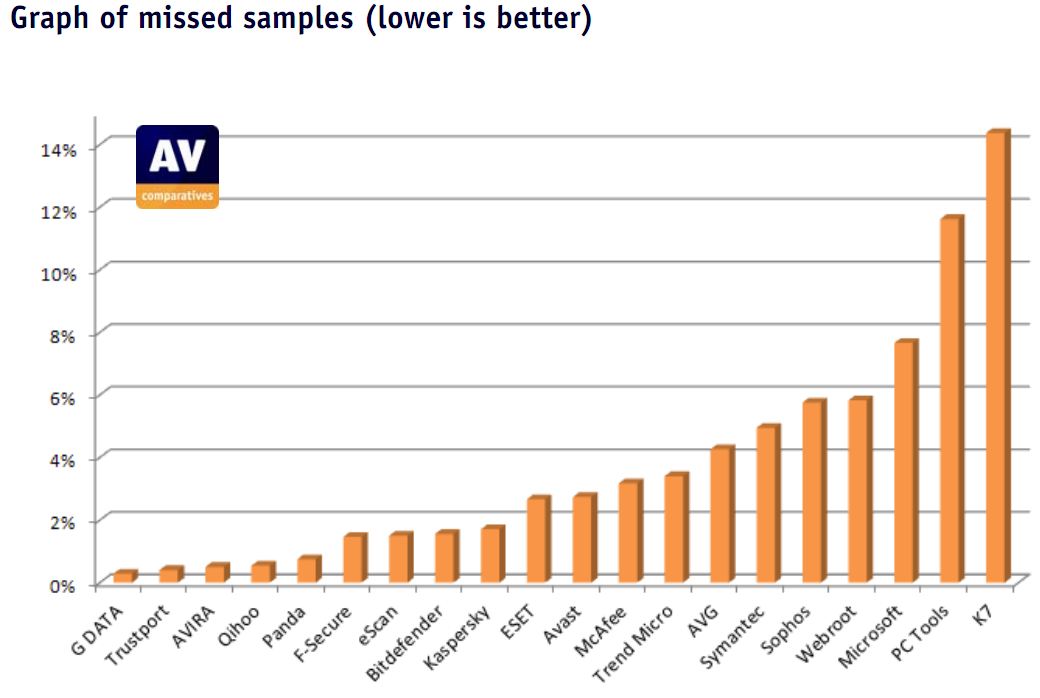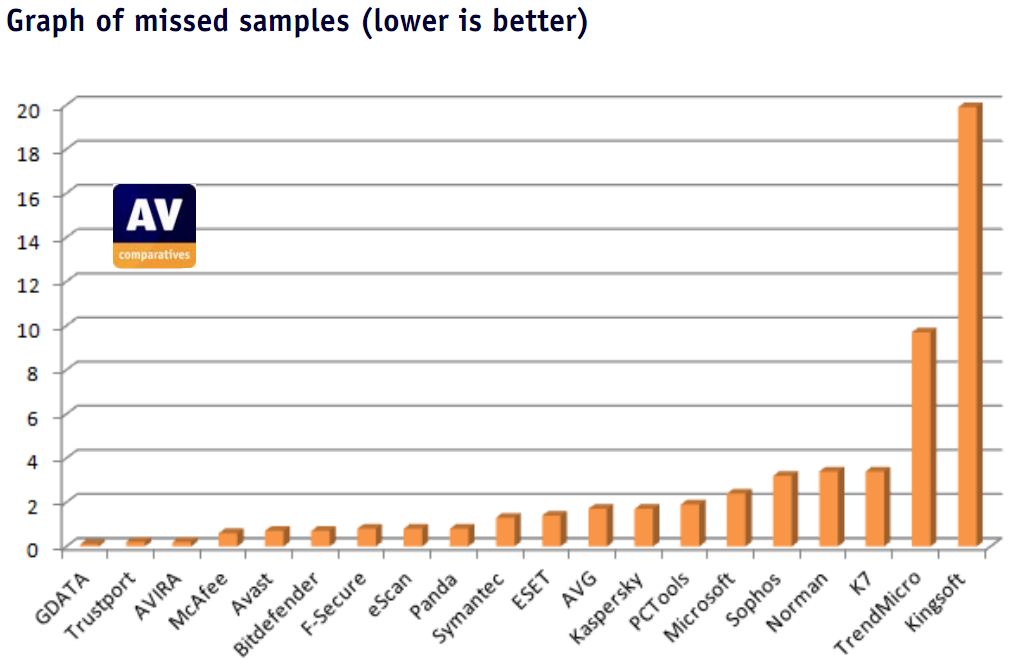Do Antivirus Suites Impact Your PC's Performance?
Most of us are now fairly confident that our antivirus scanners are doing their main job of protecting our systems from malicious pests. But what are those scanners doing to system performance behind the scenes? Are some scanners better than others?
Antivirus Need...and Greed
Let’s start with the good news: antivirus products all work. If what you care about is protecting your system from viruses and similar digital pathogens, just about every major vendor in the AV space does a respectable job. But don’t take my word for it. Check out AV-Comparatives, which currently evaluates 20 of today’s most recognized names in the antivirus world.
The above chart shows AV-C’s results for August 2011. Now compare against the same tests done in August 2010.
While it’s interesting that the three top performers on these charts are consistent, the point is that most players can change considerably from year to year, and even month to month. Does anyone really think that Microsoft went from 98% accuracy in 2010 to 92.5% and stayed there? As if the company suddenly forgot how to write virus definitions? No. Quite literally, sometimes AV companies have bad days. In the 2011 AV-C tests, Sophos and Webroot (which uses Sophos technology) were the only vendors to be dropped from the testing because the cloud-based portion of Sophos’ definition set was down.
As multiple vendors agreed in interviews with us, when it comes to detection and isolation of modern viruses, worms, bots, and so on, just about everyone does at least an adequate job.
“Most of us are close,” says Dodi Glenn, product manager at Vipre Antivirus. “The thing is, you could say that you detected some sample set, and your AV is better than mine. But if you fast forward, I could say that you missed X, Y, and Z. There’s a notion of when you gathered the data. And is it a zero-day? Has it never been seen before? Is it a proactive or reactive type of detection? It all depends on the sample set you’re using. In theory, your efficacy rate is going to change any time you update.”
Accuracy may no longer a primary criterion for product selection, although it should still be considered as a secondary item after pricing and full AV suite functionality. There is another side to consider with AV products, though, and long-time Tom's Hardware readers know it well. What impact is the software having on your system? Loads of features and stunning detection accuracy may be impressive, but if the background AV product is sucking minutes or hours of your productivity and performance away from foreground tasks, you have a problem. In general, for reasons we’ll discuss soon, we are less concerned about the impact of scheduled scans than we are about the low-level monitoring that today’s AV products perform constantly. Will they slow your gaming? Will they balloon your Web page load times?
We don’t need an exhaustive answer from examining two dozen names. We figured that half of a dozen would do for establishing whether or not AV products in general are dragging on your system and if there is a significant variance in this drag between products.
Get Tom's Hardware's best news and in-depth reviews, straight to your inbox.
-
dogman_1234 Regardless what anyone says: Using McAfee is like using a Glad garbage bag as a condom.Reply -
Martell77 I've been using Trend Micros AV since y2k and haven't had a reason to switch. Because of the systems my clients have I never recommend Norton or McAfee and if they have it I always recemmend they switch. Its truely amazing how the performance of their systems increases after getting rid of those AVs, especially Norton.Reply -
soccerdocks On the scanning time page there is an error in the second graph. It also says first run.Reply
Also, the timing of this article was excellent. I had just been doing some research about what anti-virus software I should switch to, mainly based on performance, but I guess I just got all the information I needed. -
compton Some of the results seem mysterious, like all the times the no-AV configuration scored lower in many tests than it should be faster in. Is it possible that using the Wildfire as the system drive instead of the platter would have eliminated this behavior? In general, I hope there is a second part to this that does include SSD runs. I would think any advantage AV products have vs. the no-AV config would evaporate.Reply
I stopped using AV products on my personal systems back in 2003. Norton back then was god-awful on a Pentium 4 systems, seemingly crushing the life out of a system. Even with a first generation WD Raptor 36GB my P4 2.6 would choke not only with Norton, but also McAfee. I might not use AV software, but I do put it on my family members' systems when it doesn't kill performance. In that respect these modern solutions seem much better.
-
ChiefTexas_82 On my Pentium D I have to run McAfee when I'm gone for a good while or sleeping as my computer slows to a crawl during the scan. Even bringing up the menus to stop the scan take way too long.Reply -
darkstar845 Why didn't they test this on a computer with average specs? The 8gb ram and very fast CPU might be offsetting the impact that the AVs put on the computer.Reply -
bit_user Thanks for this. I remember the bad old days when AV could make software builds take several times longer.Reply
-
cdhollan While my comment is completely tangential, but my inner chemical engineer can't resist making a small correction in what is otherwise a great article:Reply
>>Apparently, this is somewhat like saying you can boil water at 230 degrees Fahrenheit instead of 260 degrees. As long as the water is at 212 degrees or higher, no one really cares. -
rottingsheep installing vipre speeds up your computer?Reply
i think something is wrong with your numbers. -
Amazed ESET is not being tested considering it sells itself on its performance over the competition while maintaining the same levels of protection.....Reply

